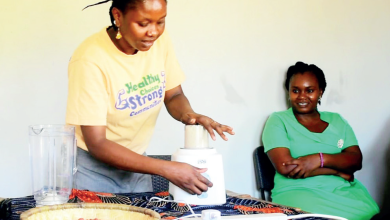MBC bias: you reap what you saw
Rants and expulsions without a systemic reset won’t fix MBC, our Staff Writer JAMES CHAVULA reports:
In September 2009, Democratic Progressive Party (DPP) protested uproariously when Malawi Broadcasting Corporation (MBC) bias irked opposition lawmakers to cut the State broadcaster’s funding to a symbolic one kwacha—just enough for a naked sweet.
The governing party, now led by Peter Mutharika who was the Minister of Justice at the height of calls for reforms, refused to whip the MBC back in line. Instead, it illicitly financed the defunded institution—feeding a serpent that would run wild to haunt them during their fall from grace.
For the past five years, MBC and its director general George Kasakula taunted the 85-year-old ex-president as too old, frail and inept to govern again.
The unchecked taxpayer-funded corporation has run wild like a serpent, reminding political elites: If a snake bites your neighbour, you too are in danger.
Early rhetoric
As unofficial dashboards pointed to Mutharika’s unassailable victory last month, his long-time security aide Norman Chisale exiled MBC reporters from the comeback leader’s private residence in Nyambadwe suburb in Blantyre.
The crew was setting their cameras for an interview with DPP spokesperson Shadric Namalomba when Chisale, now the party’s director of youth and member of Parliament for Ntcheu Central, sent them packing like gatecrashers.
The crew sheepishly sheathed its props amid accusations of vigorously discrediting Mutharika throughout the tenure of his predecessor Lazarus Chakwera, who conceded defeat early that same day.
Their exile came hours even before Malawi Electoral Commission chairperson, Justice Annabel Mtalimanja, declared Mutharika an outright winner, five years after Malawians had voted him out in a court-ordered fresh poll.
During his 10-day wait for swearing-in, Mutharika would blast MBC’s conduct as “unprofessional and unacceptable”.
“I was very concerned with MBC,” he said. “They insulted me terribly. I even wrote them a letter asking what wrong I had done, but they never responded,” he said, hinting Malawi Communications Regulatory Authority (Macra) and the Media Institute of Southern Africa (Misa) snubbed the complaint.
Misa-Malawi chairperson Golden Matonga says Mutharika never wrote the media body “The DPP secretary general [Peter Mukhito] wrote Macra and copied us. We took action on the matter, but did not respond because the addressed party was Macra,” he states.
Matonga states that Misa lawyers and their Media Council of Malawi colleagues “duly informed MBC leadership of the violations of the Communications Act”, including Kasakula’s pro-Chakwera talk show which constantly discredited Mutharika.
He recounts: “We specifically referred to the biased political commentary and also the involvement of the director general in these programmes.
“Under the Communications Act, MBC is under specific obligation to level the playing field during elections and desist from taking political positions at all times. The spirit and letter of the law were violated on several occasions by MBC.

Lessons ignored
Despite being confessed casualties, both Mutharika and Chakwera left MBC worse than they found it.
In July 2020, Chakwera appointed Gospel Kazako, who owns the award-winning Zodiak Broadcasting Station, as Information Minister tasked “to clear the rubble”.
The former MBC employee embarked on his political donkeywork on July 26 when he warned against resistance to change as he vowed “to sanitise the taxpayer-funded broadcaster to run professionally”.
He told MBC staff that the Chakwera-led Tonse Alliance had “learnt a lot from the past” and wanted MBC to give everyone equal opportunities.
“We don’t want MBC to continue to be used as a propaganda tool,” he said. “MBC belongs to the people of Malawi and Malawi belongs to everyone. We want to have equal opportunities.”
The sermon at Kwacha Studios in Blantyre came four years after Parliament had struck down MCP legislator Sam Kawale’s motion to defund “captured MBC” again— as did the party under Chakwera’s fallen forerunner, John Tembo.
Then MBC chief Aubrey Sumbuleta promised a stock-take to “not repeat the mistakes that were done” on his watch during Mutharika’s first reign.
However it appears Chakwera and his handlers did not learn from the past and staff implorations for law reforms to free MBC from partisan politics.
Five years after Kazako’s tough talk, some DPP heavies raided MBC’s Kwacha Studios, forcing Kasakula to apologise live on television for verbal attacks on Mutharika.
A former MBC journalist lamented a security lapse at the State broadcaster guarded by armed police day and night. He likened the breach to a 1992 incident in which Captain Zolo and his military accomplices stormed Zambia National Broadcasting Corporation and announced a takeover from then president Fredrick Chiluba, but the 6am coup de tat was crashed by 9am.
The MBC chief’s nightmare has stirred a backlash against the regrouping of violent cadres professing loyalty to Mutharika. In 2019, their impunity prompted Malawi Defence Force to deploy soldiers in defence of civilians marching against Mutharika’s messy re-election, which was quashed by courts.
Mutharika has neither reprimanded nor disowned the hooligans, but has since named director of information Arthur Chipenda as MBC caretaker.
However, campaigners and political experts say MBC reforms demand more than rants, tough talk or knee-jerk sackings and staff redeployments.
From tossing unwanted voices to punishment departments, called Guantanamo Bays after the US military prison in Cuba, to libel lawsuits from aggrieved politicians, MBC has seen it all—but refuses to change.
DPP has squandered chances to fix MBC, which was founded in 1964 to operate as a public broadcaster like the British Broadcasting Corporation.
In 2013, nine months before his maiden rise, Peter Mutharika, an opposition leader, obtained a court order restraining MBC from broadcasting unverified reports that he had threatened to go to war against Tanzania if he won the May 2014 presidential poll. Ironically, when he narrowly rose to power, he did nothing—not little—to reform MBC which vilified him day and night.
Similarly to blame are opposition movers and shakers. Their silence embolden biased MBC staff—like those who televised obscenities against Vice-President Saulos Chilima in a 2019 news bulletin.
From MCP to United Democratic Party and its off-springs in Mutharika’s DPP and Joyce Banda’s People’s Party, they scarcely use their numbers to modernise laws and make MBC ungovernable by selfish politicians—notwithstanding the K1 rhetoric.
Banda became the country’s first woman president when Bingu dropped dead on April 5 2012, but left MBC no better.
Like her predecessors, she stopped at ordering her much-disliked State broadcasters to open doors to politicians from all sides of the divide, but did not spell out how wide the door should fly. It slammed shut within weeks, with some Cabinet ministers harassing MBC staff for opening the door too wide.
Months after being defeated by Mutharika in 2014, Banda sued for damages after MBC broadcast a ministerial statement accusing her of plotting Bingu’s death, which autopsies linked to heart attack.
From UDF founder Bakili Muluzi to Mutharika’s comeback, all regimes seem to rejoice in changing MBC directors not the cast..
They hastily pardon those consigned to Guantanamos—even for genuine professional fouls—while leaving the commonly abused legal loopholes wide open.
In May 2017, Chakwera, as Leader of Opposition in Parliament, threatened to defund MBC again for buying chiefs and religious sell-outs to vilify opposition voices and discredit genuine concerns.
In his MBC-censored reaction to Mutharika’s State of the Nation, the man, who would tolerate MBC bias to a record low, said defunding the soundtrack of bad governance, would save taxpayer’s money from being wasted on politics of patronage.
“Fortunately, Malawians are intelligent enough to differentiate between mere rhetoric and substance and cannot be hoodwinked into believing that the government is performing by listening to the propaganda-fed panellists cartooning themselves on State television or radio,” he said.
However, the pastor-turned-politician appeared to have forgotten his grand eloquence in 2020 when he defeated Mutharika.
His regime did not go beyond swapping the MBC boss, firing journalists deemed loyal to his predecessor and confining perceived dissidents to punishment zones. Some MBC outcasts even used their ejection to seek asylum in the US, an opening closed by the Donald Trump administration.
A prophecy fulfilled
However, Chakwera’s words—that MBC cannot fool all the people all the time—came true on September 16 when Malawians overwhelmingly voted him out despite monopolising MBC radio and television stations.
Despite firming his iron grip on the State-run airwaves as if Malawi was a one-party State, he scooped just about a third—gifting Mutharika an outright win in the first round.
Recently, Fredrick Ndala, a seasoned journalist and one-time Mutharika’s press secretary, wrote a blog on how MBC failed Chakwera by operating more like a governing party megaphone than a public broadcaster.
Like irked Mutharika, Chakwera could only reap what he scw from opposition benches—as the mustard seed MCP sowed during its one-party heyday grows unchecked.





